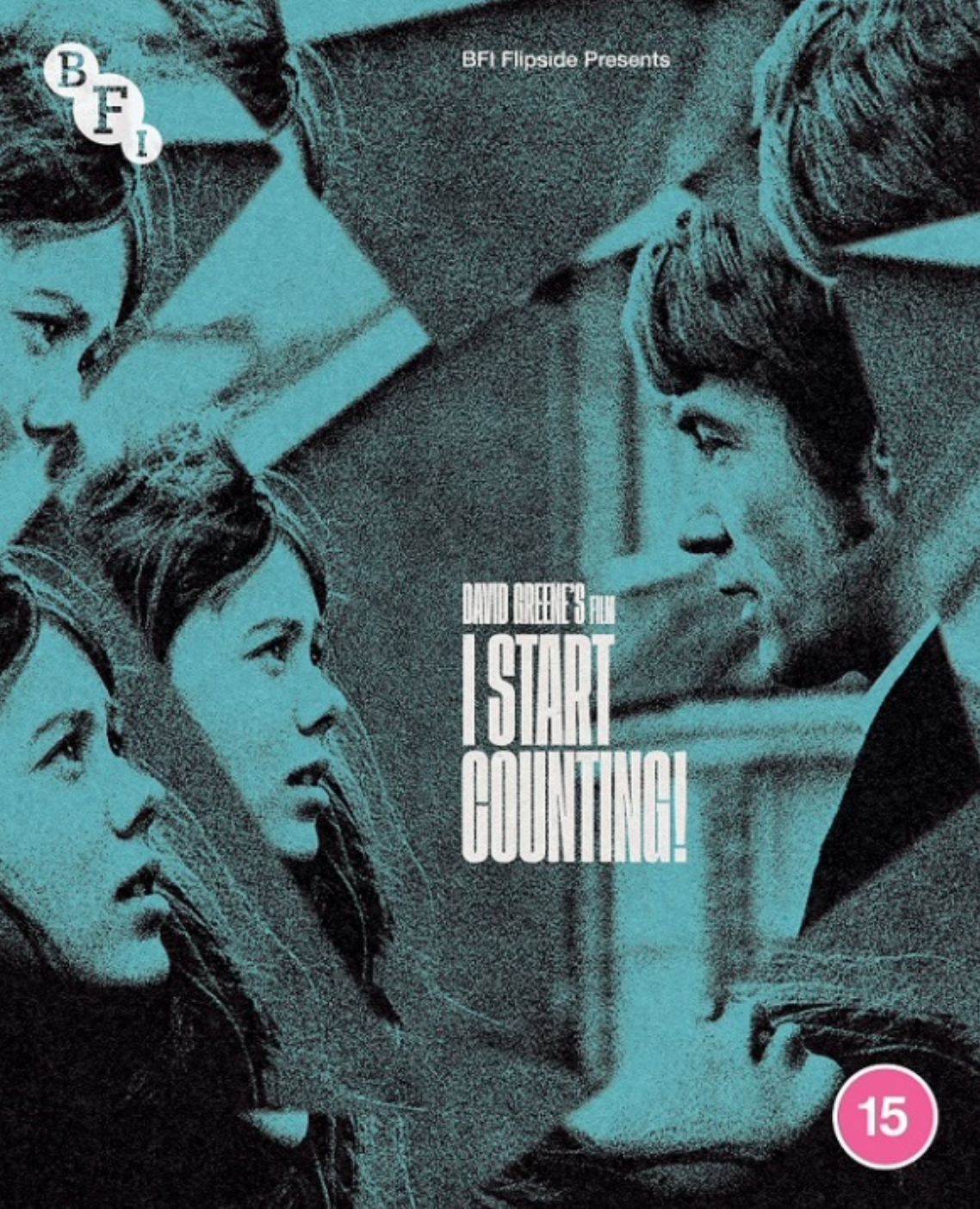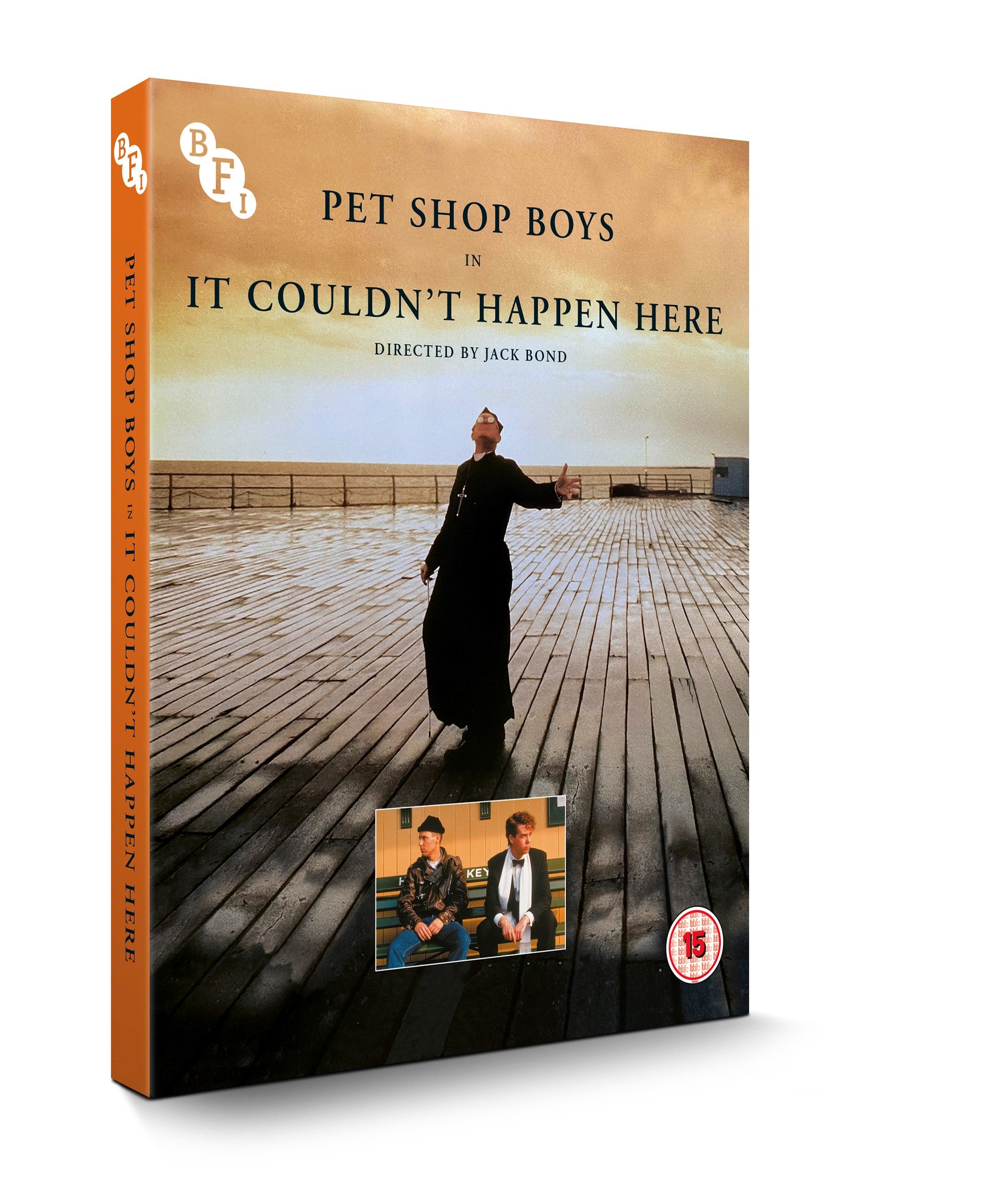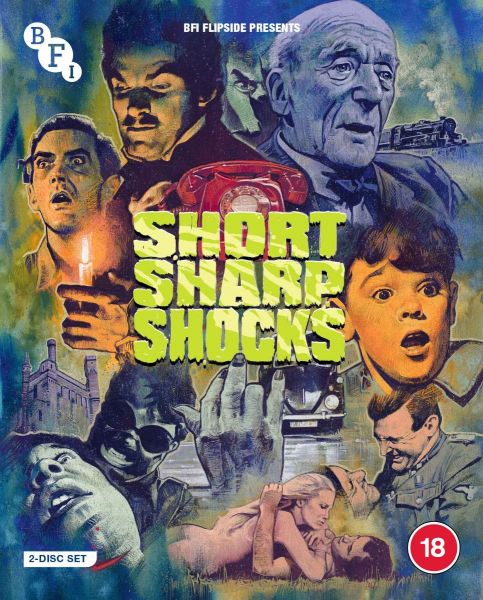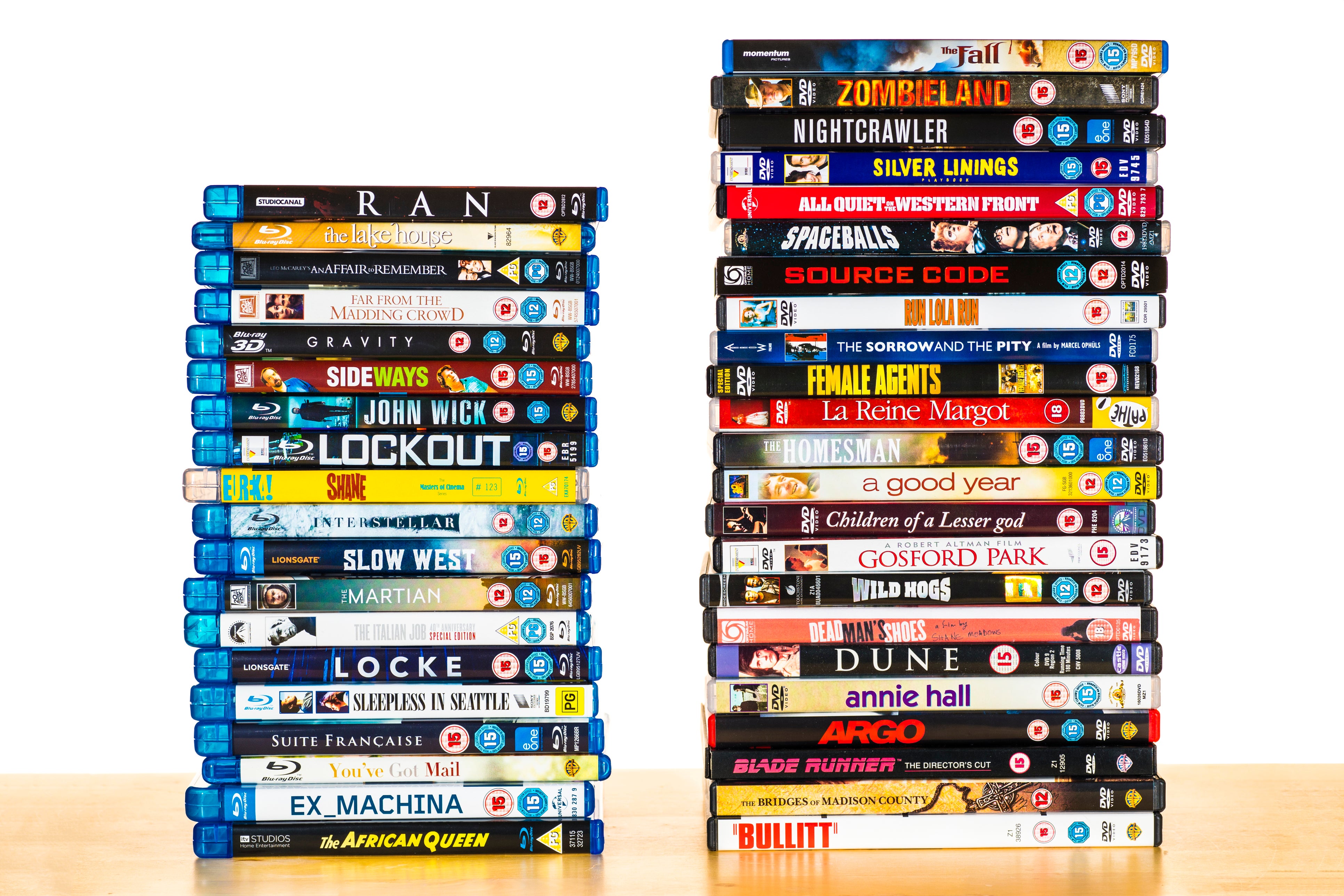Comeback kids DVD and Blu-ray remastered to fight another day
Sainsbury’s might have stopped selling them but reports of the film format’s demise are greatly exaggerated as the BFI, StudioCanal and others can testify. Why, even HMV is reopening. James Moore on the physical format revival


The decision by Sainsbury’s to stop stocking DVDs and Blu-rays was for some confirmation of the demise of the disc, the descent of those shiny platters into the dustbin of format history along with VHS, Betamax, laser discs and the rest. Sales have been in long-term decline, at an average of 20 per cent annually, having peaked in 2004 prior to the emergence of digital downloads and, especially, streaming.
The entertainment industry’s laser-like focus is today on the latter. A multi-billion-dollar battle for dominance is underway. Even Netflix is feeling the effects. Of late, the subscriber numbers of the industry’s reigning monarch have fallen short of expectations. Its latest trading update also showed earnings coming in below Wall Street’s forecasts.
Why on earth, then, did Anime UK close its own streaming venture in favour of focussing on the physical format, alongside cinematic distribution at a time when the future of cinemas has also been questioned?
“There’s a demand for physical,” the company’s CEO, Andrew Partridge, states baldly. “We’ve seen a huge increase in sales during the pandemic too.”
Screen Anime was the name of his streaming service. Unable to press ahead with the annual Scotland Loves Anime festival because of Covid regulations, Partridge took the concept online, offering a curated selection of recently released anime films, festival favourites, curiosities and at least one series, with the line-up refreshed every month.
For collectors, for people who love a genre, a physical copy has value. As platforms move to streaming only, it means there is potential for a company like us to co-exist happily and make it a real business on top of theatrical anime
The venture had a lot going for it for fans of the genre, who tend to be knowledgeable, passionate, and highly engaged with the medium. A peculiarity of anime is that it can take a long time for films to make it to streaming services/home video after their theatrical releases. Screen Anime offered a solution to that. Weathering With You, Makoto Shinkai’s follow up to the smash hit Your Name appeared within a matter of weeks of its cinematic run.
Millennium Actress, a strange and fantastical tale partly based on the life of screen legend Setsuko Hara, the star of Tokyo Story and several other classic films from the golden age of Japanese cinema directed by Yasujirō Ozu, had been virtually impossible to find in the UK until Partridge brought it back. “Screen Anime served the purpose it needed to serve,” he told me. “We broke even on our costs but you get to a point where you’re running out of theatrical content and you maybe have to change your model. The costs of doing that can be astronomical.”
At the same time, as Partridge points out, “streaming goes away” something anime fans, in particular, are only too well aware of. “For collectors, for people who love a genre, a physical copy has value. As platforms move more and more to streaming only, it means there is potential for a company like us to co-exist happily and make it a real business on top of theatrical anime.”
Partridge’s special edition releases are sumptuously produced affairs, packed with the extras and artwork that are catnip to collectors. He is not only the CEO. He is the head of product and he spends many hours at it with the aim of creating objects of desire.

Blu-ray discs themselves don’t have quite the romantic appeal of vinyl, another format once considered on its way out. But something similar to what is happening with Blu-ray helped to catalyse its revival, namely its transformation from the industry standard, which it lost to CD, into a premium product. Labels now regularly offer releases on multi-coloured vinyl with gatefold sleeves and artwork.
Partridge’s special editions do much the same thing. Their appeal is such that he’s even been able to work with Netflix. B the Beginning, one of the streaming giant’s original anime properties, a 15 certificate genre-straddling mix of cop drama, fantasy and cyberpunk, is the subject of an Anime UK special edition featuring a hardback book, a soundtrack disc and stills alongside the Blu-ray.
Partridge is far from alone in investing in premium content. The concept has been embraced by several companies. Arrow and StudioCanal are both, like Anime UK, cinematic distributors, which have maintained a commitment to discs, particularly premium discs (StudioCanal also makes films, notably Paddington).
John Rodden, the company’s head of library, said he wasn’t at all phased by Sainsbury’s decision: “I think there is a very vibrant market for discs, especially within the collectors’ market and with premium products. Classic films in particular.

“What’s been happening with discs is similar to what you’ve seen in the publishing world with books and in music with vinyl. There’s a great love for content and we’ve invested heavily in restoration work for our movies to make them look good. We’ve taken the view that if you treat a film not like it’s a dusty old movie but as a great work of art, in terms of restoration, then people will value that and see it as such.
“We saw, during lockdown, a huge increase of sales of catalogue movies in general. People are going through streaming services and finding that the offering is not that deep, or wide.”
Rodden said the collector market was already robust. Lockdown, however, catalysed a greater interest in “discovering content, going on a journey of discovery”. He highlights films such as The Lady Killers, Don’t Look Now, The Servant, Apocalypse Now.
“These films are great. They look amazing. The technology we have to restore them, to bring them up to the level of 4K, you’re really able to show them better than you could originally. The first and best way to see them is obviously on the big screen. We want people to see films on big screen. Then we want people to become collectors.”
We want to give longevity to these titles, to films that are loved by people, even by communities, who have may have grown up with this film or that film, seen it, loved it, but may have trouble finding it now
Arrow director Alex Agran made a similar point: “What we want to do as a company is give longevity to these titles, to films that are loved by people, even by communities, who have may have grown up with this film or that film, seen it, loved it, but may have trouble finding it now.
“Our films are curated by specialist acquisitions guys that understand the market and the demand. When we do put out a film that will be sought after, we will give it as much lavish investment and treatment as we can, to retain its place in film history.”
Agran was honest enough to admit that the motivations weren’t “purely altruistic”.
“There has to be a commercial angle. We’re a business so we’ve developed an understanding of how many people will buy a product and what platform works best. What we’ve fortunately been able to do is make it so our brand and our presence on a release will give that title an element of kudos. Hopefully, people will feel that if Arrow is putting it out it may be worth taking a punt on buying. Arrow will take it as far as we can in terms of restoring a film, presenting it, giving it the love it deserves.”
Blu-rays and DVDs still have a huge part to play in the home entertainment experience because millions of consumers still love them for so many important reasons
All those concerned cited the importance of discs when it comes to “cultural preservation”. Whenever there is a format switch, some titles inevitably don’t move across. They get lost. The market for VHS on platforms such as eBay may in part be governed by nostalgia, and the kitsch appeal of tape, but it is also sometimes driven by people's desire to obtain content that might not be available via any other means.
An example of a piece of work that was in that position is the Pet Shop Boys’ It Couldn’t Happen Here. Director Jack Bond had set out to make an extended pop video based on the act’s 1987 album Actually. It turned into an eccentric full-scale feature film featuring Neil Tennant and Chris Lowe. It received a release on VHS but never made it to DVD, that is until the British Film Institute stepped in.

John Ramchandani, head of video publishing, said: “We got in touch with the director. He told me where the master materials were. After months of negotiation we acquired them and paid for the restoration. It has sold tremendously. People have talked about the death of DVD for ages but our customers never really went away. This last year we had our busiest since 2012. Why? A mix of a strong slate and also a very healthy back catalogue of close to 500 films.”
But is this still a market in danger of “ageing out”? Millennials, even Generation Z, are record store regulars. It’s not unknown for them to purchase vinyl even if they lack turntables to play it on. Does that hold true for Blu-ray?
“Younger people are going for it too,” Ramchandani insisted. “We see that on the BFI DVD page on Facebook. The people who engage are all ages but they learn younger on social media, even though you might imagine the specialist physical format appeals to an older audience. People like to post pictures. Our job is to feed their hunger. That’s why we can’t just release the disc. It has to be worth the investment. We have to release the film in the best possible way. That’s why we do the extras too. It Couldn’t Happen Here came with a book. We have essays. With the physical release you get a mini film school. The good thing about the BFI is people are happy to write for our books and booklets. This is so important in maintaining cultural value.”

Ramchandani said that the BFI’s motivations weren’t purely commercial. It is a charity with a cultural mandate, which helps inform projects like It Couldn’t Happen Here, and ventures like BFI Flipside. Its aim is to rescue weird and wonderful British films from obscurity and to present them in high-quality editions. Its most recent outing was the thriller I Start Counting! (1969), starring a 14-year-old Jenny Agutter.
There are still concerns among cinephiles and industry figures, at least privately, about some developments, however, notably what happens with where Disney sits. The company has mobilised its vast resources into turning Disney+ into a genuine competitor to Netflix, and with considerable success.
None of the three critically acclaimed series from the all conquering Marvel on Disney+ are slated to appear on Blu-ray. If Marvel Cinematic Universe (MCU) fans want to see them, the only way is via subscription. A notable feature of those releases is also the inclusion of the sort of content that might usually appear as extras on discs streaming alongside the shows: making of features, interviews with stars etc.

Luca will get a disc. Disney Pixar’s latest original animation was released direct to Plus without either a cinematic run or even an additional “premier access fee”. These have been charged to subscribers who want early-look higher-profile franchise properties such as the live action Mulan (which also never made it to cinemas) and Black Widow. The former has a disc, the latter has one coming.
Pixar’s Soul, similarly released direct to Disney+ on Christmas Day, also has a Blu-ray and Disney retains a substantial share of the market for discs, of which 34.1 million were sold last year, even with shops closed: 48.2 million were shifted in 2019.
But how long is it before a film is also released solely via Plus, like the Marvel series? Industry sources I spoke to through the course of researching this piece voiced concern over what might happen in future, particularly to the 20th Century Fox catalogue, which is peppered with the sort of classics and/or cult properties that are sought after by producers of premium editions.

Liz Bales, chief executive of the British Association for Screen Entertainment, nonetheless argued that there were reasons to be confident about the future of the market, citing the growth of 4K and ultra high definition releases.
“Blu-rays and DVDs still have a huge part to play in the home entertainment experience because millions of consumers still love them for so many important reasons: when you buy a disc you own it forever and gifting DVDs and Blu-rays is still the perfect present. 4K Blu-ray and UHD is the optimum at-home viewing experience as many film fans know, especially now you can watch these discs on gaming consoles,” she said, pointing out that 1 million of those were shipped in 2020.
“It is a dynamic and evolving category at the forefront of technology, and it’s important that consumers have multiple options that mirror that, but our insights show that they are making use of all of these avenues. Now the cinemas have reopened and new feature film product is coming back in to stores, the DVD and Blu-ray market will continue to play a vital role in millions of peoples’ home-watching experience for many years to come.”
There’s no exact science to this but we seem to be doing the right thing. We understand the fan base and, a bit like a specific film studio, we know what the committed fan wants
So there’s nothing to worry about with Sainsbury’s? Perhaps not. The grocer wasn’t a big outlet for any of the organisations I spoke to, if at all. Among the retailers they cited, in addition to their own online stores: Amazon, Zavvi and HMV.
Just this week the latter, now in Canadian hands, announced 10 new high street stores, including the search for a new flagship London outlet to replace the once famous Oxford Street store, to industry-wide cheers.
Asda, Sainsbury’s rival, has also taken a quite different approach to its rivals, according to Ken Law, from wrestling’s WWE. Law positively gushed about the place, which continues to sell a lot of his product. Most of it isn’t in the premium sector. Most of it isn’t even in standard Blu-ray, let alone the 4K favoured by premium producers. Law said 80 per cent of his sales were standard DVDs.
“We do have our fanboy collectors that want everything so they can catalogue it, and we release content specially for them including content on Blu-ray. We have special editions with added value too. When the Undertaker retired, for example, we got hand-signed photographs and put them in a special edition. But we also have a lot of casual fans who maybe dip in and out, maybe buy one or two pay per views a year and some DVDs.

“We’ve bucked the trend. We’re still growing. Quite often what we’re putting out is what’s been streaming, where you have an ongoing soap opera and you have classic moments like with classic film. We make sure content is price matched. Streaming is £5.99 to £9.99 a month. We price point at that. We also sell through HMV and Amazon, but Asda is a real driver for us.
“There’s no exact science to this but we seem to be doing the right thing. We understand the fan base and a bit like a specific film studio, we know what the committed fan wants and the same goes with the casual fan, who might pick up the occasional disc from Asda.”
DVD/Blu-ray is certainly down in terms of raw numbers, but it’s far from out. It doesn’t appear that the Undertaker will be knocking on the door of the disc any time soon.
Join our commenting forum
Join thought-provoking conversations, follow other Independent readers and see their replies
Comments